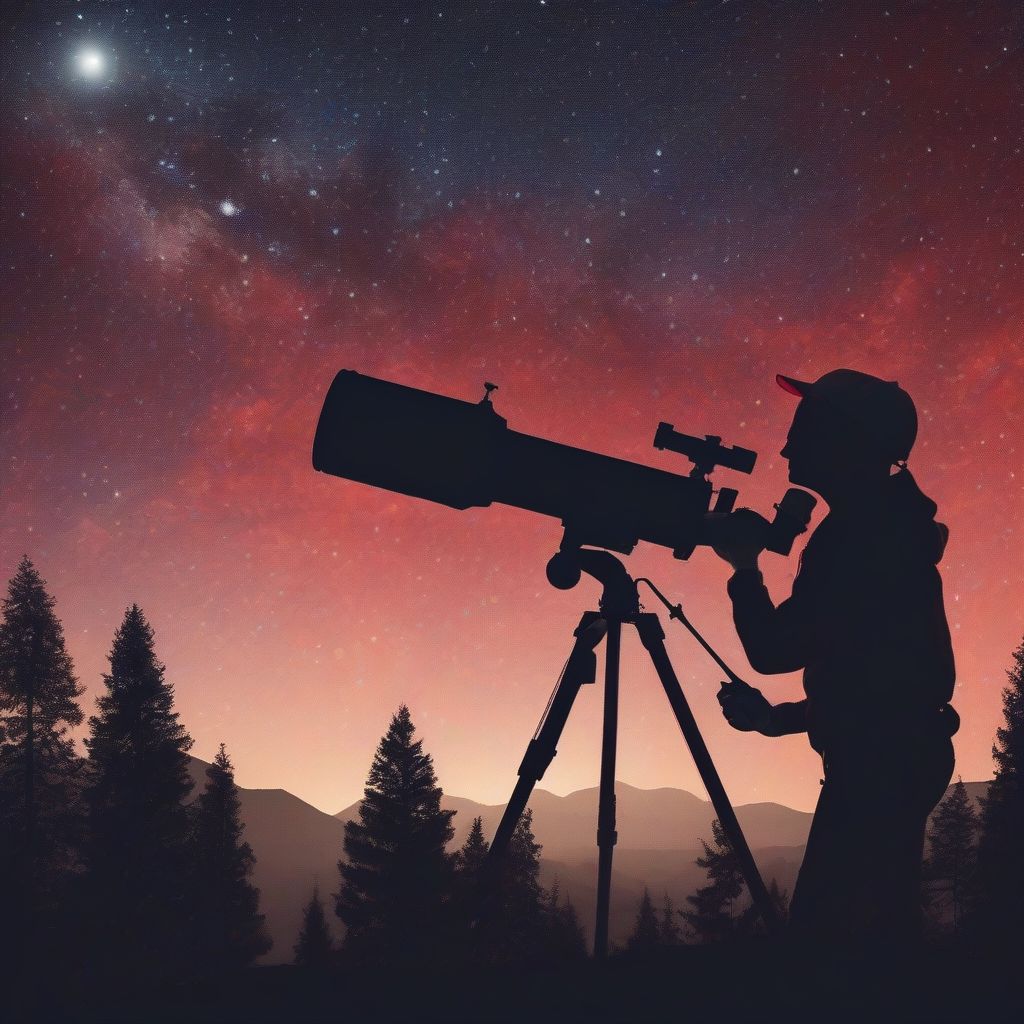Have you ever gazed up at the night sky and felt a sense of awe and wonder? That feeling has captivated humans for millennia, driving us to explore the cosmos and unravel its mysteries. While professional astronomers play a crucial role in this quest, it’s often easy to overlook the significant contributions of another group of dedicated individuals: amateur astronomers. These are everyday people, fueled by passion and curiosity, who dedicate countless hours to observing the heavens and, in doing so, make remarkable discoveries that expand our understanding of the universe.
More Than Just Stargazers: The Impact of Amateur Astronomers
Amateur astronomy is far more than just a casual hobby; it’s a vital force in scientific discovery. Unburdened by the same pressures and constraints as professionals, amateur astronomers often have the freedom to pursue their own research interests and dedicate significant time to observing the night sky.
Here’s how these dedicated individuals contribute to the field of astronomy:
1. Eyes on the Sky: Detecting Transient Events
One of the most crucial roles amateur astronomers play is in the detection and observation of transient astronomical events. These events, as their name suggests, are temporary occurrences in the cosmos, ranging from supernova explosions to the sudden brightening of variable stars.
Professional telescopes, with their limited observation time and specific research agendas, often miss these fleeting celestial events. Amateur astronomers, with their networks spanning the globe and their ability to rapidly respond to alerts, act as a crucial early warning system for the scientific community. They provide valuable data and observations that allow professional astronomers to quickly follow up on these events, leading to a more comprehensive understanding of these celestial phenomena.
2. Citizen Science Powerhouses: Contributing to Large-Scale Surveys
Amateur astronomers are also vital contributors to large-scale citizen science projects. These projects, often initiated and managed by professional astronomers, rely on the collective power of volunteers to analyze massive datasets, classify celestial objects, and search for patterns within vast amounts of astronomical data.
A prime example is the Galaxy Zoo project, where volunteers classify galaxies from images captured by telescopes like the Hubble Space Telescope. This project has led to numerous discoveries, including the identification of entirely new types of galaxies and insights into galactic evolution.
3. Comet Hunters and Asteroid Trackers: Protecting Our Planet
Beyond their contributions to scientific understanding, amateur astronomers play a vital role in planetary defense. Their tireless observations of the night sky have led to the discovery of numerous comets and near-Earth asteroids, some of which could pose a potential threat to our planet.
By tracking these objects and providing valuable data on their trajectories, amateur astronomers contribute to global efforts to identify and mitigate potential asteroid impacts, ensuring the safety of our planet.
Empowering Discoveries: The Tools and Techniques of Amateur Astronomers
While the image of an amateur astronomer might conjure visions of peering through a backyard telescope, the reality is far more sophisticated. Today’s amateur astronomers utilize a range of advanced tools and techniques, often rivaling those used by professionals just a few decades ago.
1. Advanced Telescopes and Imaging Equipment
Amateur-grade telescopes have advanced significantly, offering impressive light-gathering capabilities and high-resolution imaging at increasingly affordable prices. Many amateur astronomers now use computerized telescopes equipped with CCD cameras, allowing them to capture stunning images of celestial objects and record faint details often invisible to the naked eye.
2. Software and Data Analysis Tools
The digital revolution has transformed amateur astronomy, providing access to powerful software and data analysis tools. Amateur astronomers can now process their images, analyze light curves, and even control their telescopes remotely, further enhancing their ability to make significant contributions to scientific research.
3. Online Collaboration and Communication Platforms
The internet has fostered a vibrant global community of amateur astronomers. Online forums, databases, and social media platforms allow them to share their observations, collaborate on projects, and receive real-time alerts about transient events, significantly amplifying their collective impact.
Inspiring Future Generations: The Enduring Legacy of Amateur Astronomers
The contributions of amateur astronomers extend beyond scientific discoveries; they play a vital role in inspiring future generations of scientists, engineers, and space enthusiasts.
Through public outreach programs, stargazing events, and educational initiatives, amateur astronomers share their passion for the cosmos, igniting a sense of wonder and curiosity in people of all ages. By making astronomy accessible and engaging, they foster a lifelong love of learning and encourage young minds to pursue careers in STEM fields.
A Universe of Opportunity: The Future of Amateur Astronomy
As technology continues to advance and access to information grows, the role of amateur astronomers in scientific discovery is only set to become more significant. With their dedication, passion, and unique perspective, they will continue to be at the forefront of uncovering the cosmos’s secrets, pushing the boundaries of our understanding, and inspiring us all to look up and marvel at the wonders of the universe.
 Amateur Astronomer Exploring the Cosmos
Amateur Astronomer Exploring the Cosmos
[amazon bestseller=”telescopes for beginners”]
